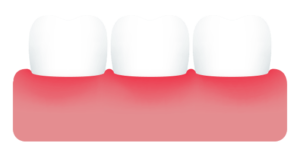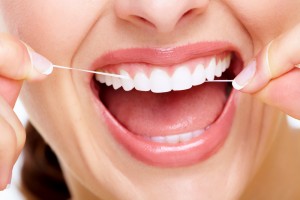
Pregnancy is a joyous time, but it is also very physically demanding. Your body undergoes a range of changes to protect and nurture your child. This can even extend to your teeth. You may have heard, or perhaps experienced, pregnancy gingivitis or tooth loss during or after pregnancy.
Why does pregnancy gingivitis occur? What are the warning signs? And what can you do about it?
What is Pregnancy Gingivitis?
Normally, healthy gums are firm, pink, and closely attached to the teeth. You may notice during pregnancy, however—especially during the second trimester—that your gums are red, swollen, and may bleed when you brush or floss. This is pregnancy gingivitis, and it can occur even if you’ve had no oral health problems in the past.
What Causes Pregnancy Gingivitis?
Gingivitis is more common with pregnancy, especially during the second trimester. Though the causes are not fully understood, pregnancy gingivitis studies indicate the additional progesterone and estrogen created during pregnancy are to blame. These hormones may be responsible for reducing the immune response needed to keep bacteria at bay, changing cell reproductive capabilities in the gingiva (gums), reducing antioxidants and increasing oxidative stress, or other effects.

Since estrogen and progesterone must be produced during pregnancy, this cause of pregnancy gingivitis cannot be avoided. But not all women experience pregnancy gingivitis. The CDC reports that between 60 and 75% of pregnant women have gingivitis. However, this may be due to the prevalence of existing, untreated gum disease, which would worsen during pregnancy. Your oral health prior to pregnancy, and your oral hygiene during pregnancy, will have an effect on the development of pregnancy gingivitis.
Is Damage From Pregnancy Gingivitis Permanent?

After pregnancy when hormone levels return to normal, the effects of pregnancy gingivitis go away. However, if gingivitis was untreated before pregnancy, this might not be the case.
Does Pregnancy Cause Tooth Loss?
It is a common myth that women lose a tooth when they have a child. Though the teeth may be vulnerable due to hormonal changes affecting the gingiva, this does not automatically result in tooth loss.
Another common myth is that teeth lose calcium during breastfeeding, which has been thought to contribute to tooth loss. This is also false. While is is possible for the body to draw calcium from the bones to nourish the baby, calcium is generally not drawn from teeth. After breastfeeding, the bones restore calcium quickly.
Simply practicing good dental hygiene will protect your teeth, and there is no reason to believe that tooth loss will occur from pregnancy alone.
What Can I Do To Prevent Pregnancy Gingivitis?

Here are a few things to keep in mind:
- Brush twice daily, every day.
- Floss once a day.
- After eating, while snacking or drinking other beverages, drink water to wash away sugars.
- Avoid sugary drinks and snacks as much as possible.
- If you are suffering from morning sickness, the ADA recommends rinsing with a water and baking soda solution instead of brushing in order to neutralize the stomach acid.
- See your dentist as you normally would. Regular dental treatments, including filling cavities and restorative treatments, are completely safe while pregnant.
Some studies have shown a correlation between periodontal disease (an advanced stage of gingivitis) and birth complications. This means practicing diligent dental hygiene protects not only your teeth, but also your child’s wellbeing. If you haven’t visited the dentist in several years, do so as soon as possible. Talk to your dentist about any concerns you have about pregnancy gingivitis, or other issues you’re unsure about.
Sources
- Min Wu. Shao-Wu Chen. Relationship between Gingival Inflammation and Pregnancy. Mediators of Inflammation. 2015 Mar 22. doi: 10.1155/2015/623427
- Pregnancy and Oral Health. Centers of Disease Control and Prevention.
- Laine M. A. Effect of pregnancy on periodontal and dental health. Acta Odontologica Scandinavica. 2002;60(5):257–264. doi: 10.1080/00016350260248210.
- Oral Health Topics: Pregnancy. American Dental Association.
